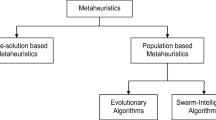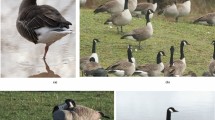Abstract
Aiming at the problems and shortcomings of genetic algorithm, a hybrid genetic algorithm based on chaos genetic algorithm is designed in this paper. Based on the actual situation of universities, a mathematical model of timetabling problem is proposed. In view of the deficiency of genetic algorithm, chaos is introduced into the genetic algorithm by using the inherent regularity of chaotic sequence, effectively guiding crossover and mutation operation, and avoiding the defect that standard genetic algorithm is easy to fall into local minimum. The simulation of the course scheduling problem under the same conditions is conducted at the end of the paper, with the standard genetic algorithm and hybrid genetic algorithm. By comparing the calculation results, the results proved that the hybrid genetic algorithm is fully applicable to the scheduling problem, and has a high efficiency. At last, it can be concluded that the chaos genetic algorithm provides new ideas for timetabling problem.





Similar content being viewed by others
References
Kanarachos, S., Kanarachos, A.: Intelligent road adaptive suspension system design using an experts based hybrid genetic algorithm. Expert Syst. Appl. 42(21), 8232–8242 (2015)
Azadeh, A., Abdollahian, M., Hamedi, M., Asadzadeh, S.M.: A novel hybrid fuzzy logic-genetic algorithm-data envelopment approach for simulation optimisation of pressure vessel design problems. J. Math. Oper. Res, Int (2017). https://doi.org/10.1504/IJMOR.2012.049940
Jaengchuea, S., Lohpetch, D.: A hybrid genetic algorithm with local search and tabu search approaches for solving the post enrolment based course timetabling problem: outperforming guided search genetic algorithm. In: International Conference on Information Technology and Electrical Engineering, pp. 29–34. (2015)
Shah, C.P., Reeves, A.: The aboriginal cultural safety initiative: an innovative health sciences curriculum in ontario colleges and universities. J. Comput. Med. Commun. 20(1), 99–114 (2015)
Dmochowski, J.E., Dan, G., Fisher, S., Greene, A., Gambogi, D.: Integrating sustainability across the university curriculum. Int. J. Sustain. High. Edu. 17(5), 652–670 (2016)
Albert, Y.Z., Karpin, R., Olariu, S.: The single row routing problem revisited: a solution based on genetic algorithms. VLSI Des. 14(2), 123–141 (2015)
Vázquez-Barreiros, B., Mucientes, M., Lama, M.: Prodigen: mining complete, precise and minimal structure process models with a genetic algorithm. Inf. Sci. 294, 315–333 (2015)
Yaghoobi, S., Mojallali, H.: Tuning of a pid controller using improved chaotic krill herd algorithm. Optik – Int. J. Light Electron Opt 127(11), 4803–4807 (2016)
Wei, J., Yu, Y., Wang, S.: Parameter estimation for noisy chaotic systems based on an improved particle swarm optimization algorithm. J. Appl. Anal. Comput. 5(2), 232–242 (2015)
Zhang, C., Cui, G., Chen, S.: An improved chaotic ant swarm algorithm for simultaneous synthesis of heat exchanger network. Jisuan Wuli/chinese J. Comput. Phys. 34(2), 193–204 (2017)
Malik, T.N., Zafar, S., Haroon, S.: Short-term economic emission power scheduling of hydrothermal systems using improved chaotic hybrid differential evolution. Turk. J. Electr. Eng. Comput. Sci. 24(4), 2654–2670 (2016)
Su, H., Zhu, Z.: Research on coordination optimization of dc modulation controller in multi-infeed transmission system based on improved prony and chaos cloud particle swarm algorithm. J. Intell. Fuzzy Syst. 30(6), 3703–3715 (2016)
Yuan, X., Zhang, T., Dai, X., Wu, L.: Master–slave model-based parallel chaos optimization algorithm for parameter identification problems. Nonlinear Dynam. 83(3), 1727–1741 (2016)
Yap, W.S., Phan, C.W., Yau, W.C., Heng, S.H.: Cryptanalysis of a new image alternate encryption algorithm based on chaotic map. Nonlinear Dynam. 80(3), 1483–1491 (2015)
Acknowledgements
This paper was supported by the Natural Science Foundation of Hubei Province of China (No. 2015CKB740).
Author information
Authors and Affiliations
Corresponding author
Rights and permissions
About this article
Cite this article
Ding, C., Chen, L. & Zhong, B. Exploration of intelligent computing based on improved hybrid genetic algorithm. Cluster Comput 22 (Suppl 4), 9037–9045 (2019). https://doi.org/10.1007/s10586-018-2049-7
Received:
Revised:
Accepted:
Published:
Issue Date:
DOI: https://doi.org/10.1007/s10586-018-2049-7




